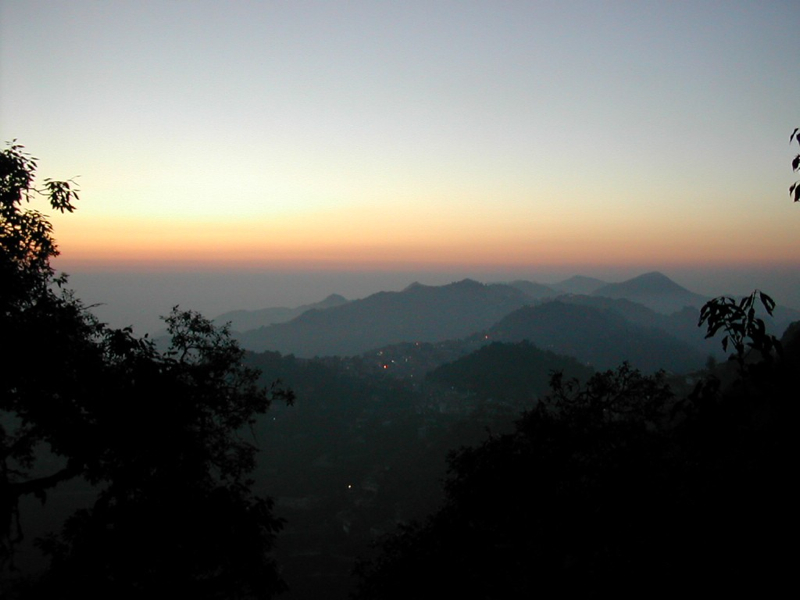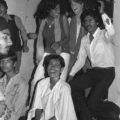This year is the 20th anniversary of my graduation from an international boarding school called Woodstock School, located in the foothills of the Himalayas in India.
Woodstock was founded 150 years ago for Protestant girls. India was a rough place for children then, so it was usual for westerners to send their kids to boarding school back home, or to the hills in India where cooler weather meant less disease.
By the mid-1970s, the missionary population in India was diminishing, and Woodstock realized that, to survive, it would have to change direction and emphasis. A new school charter was adopted, aiming to recruit a student population of 1/3 North Americans, 1/3 Indians, and 1/3 others.
So Woodstock is a very international place. The 60 graduates in my class represented 14 different nationalities, plus every major religion and several “minor” ones. We were intensely together – studying, playing, living, growing up – ten months of every year.
When you grow up with people of other cultures, you know in your gut that, beneath surface differences, we’re all human, with similar feelings and aspirations.
The only thing we didn’t tolerate at Woodstock was intolerance itself. One girl arrived in 1979, fresh from the US where her father had been in India’s diplomatic service. One day she wore to school a “Nuke the Ayatollah” t-shirt she had bought in the US. None of us were fond of the Ayatollah, but many of our schoolmates were Iranis who had left their home during the Iranian revolution because they were in danger from one side or the other. (One boy exhibited horrifying drawings of violence he had witnessed firsthand, such as soldiers machine-gunning a crowd.) All of these kids still had friends and family back in Iran, and of course nuking the Ayatollah would have meant nuking those innocent people as well. I don’t think anyone actually said anything to her about the t-shirt, but she never wore it again.
Woodstock taught us not only to accept the different, but to embrace it. Miscegenation was the rule: most of the teenage couples were mixed by race, religion, culture, or nationality. Many of us went on to marry people of other cultures, races, religions, and nationalities, and are raising children in countries we were neither born nor raised in. This is only the most obvious manifestation of the culture of tolerance that Woodstock instilled in us. Even Woodstockers who go back to their hometowns, marry, and raise children there, have a different attitude than most of their neighbors.
Most of the world’s strife is born of ignorance and misunderstanding. Many people cannot comprehend how someone else could see things differently than they do; their instinctive reaction is: “Anyone who doesn’t think the way I do is evil, stupid, or insane.”
Woodstockers, however, accept that others see things differently, and are able to respect others’ opinions and beliefs even when we do not agree with them. The world could use more people with this attitude. If there were more schools like Woodstock, there might be fewer wars.
I don’t have the money to create more schools like Woodstock. But this idea has been in the back of my mind for a long time: What if we could fund scholarships to bring more kinds of kids from all parts of the world to Woodstock, for at least a year, maybe all four years of high school? Kids from all countries, cultures, and social strata, especially inner city/disadvantaged kids who otherwise might not have much of a future. And, in the present context, we might specifically “target” kids from areas like Israel/Palestine, for whom a chance to meet “the other” in a different context could change their attitudes – and, in a small way, their country’s future.
But I wanted to talk to you all about Woodstock in hopes of reaching some “ordinary” kids as well. If you have or know a teenager who has a sense of adventure, let them know about this extraordinary school. BTW, it’s also a well-recognized place to get a great education. Woodstock grads go on to college pretty much wherever they want (two of my classmates went to MIT), and thrive on higher education (my class can so far boast at least six PhDs, two MDs, and almost everyone got at least an undergrad degree). Great music instruction, sports, lots of hiking, and fantastic scenery. And an experience that will stay with you for a lifetime.
ps One of our distinguished alumni is TED’s Chris Anderson; here’s what he has to say about his Woodstock experience: An international school in India with a message for the world




